LCME Blog
Standards and Elements ExplainedLatest Posts:
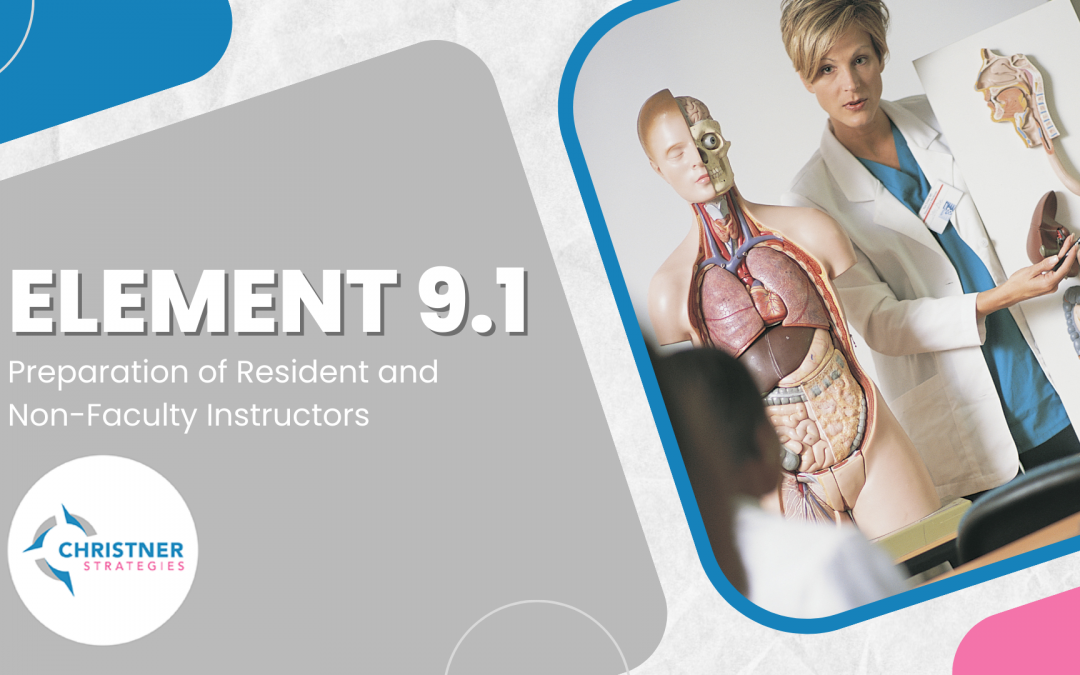
Element 9.1: Preparation of Resident and Non-Faculty Instructors
LCME Element 9.1 - Preparation of Resident and Non-Faculty Instructors (from 2022-23 Version): In a medical school, residents, graduate students, postdoctoral fellows, and other non-faculty instructors in the medical education program who supervise or teach medical...
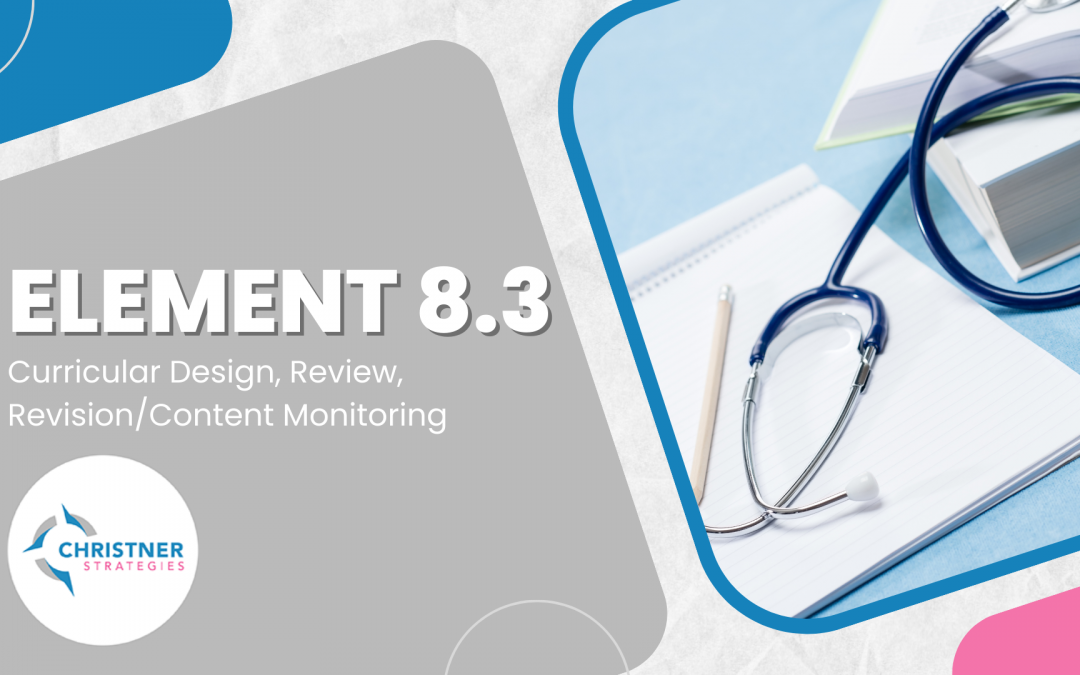
Element 8.3: Curricular Design, Review, Revision/Content Monitoring
LCME Element 8.3 - Curricular Design, Review, Revision/Content Monitoring The faculty of a medical school, through the faculty committee responsible for the medical curriculum, are responsible for the detailed development, design, and implementation of all components...

Element 7.9: Interprofessional Collaborative Skills
LCME Element 7.9 - Interprofessional Collaborative Skills The faculty of a medical school ensure that the core curriculum of the medical education program prepares medical students to function collaboratively on health care teams that include health professionals from...
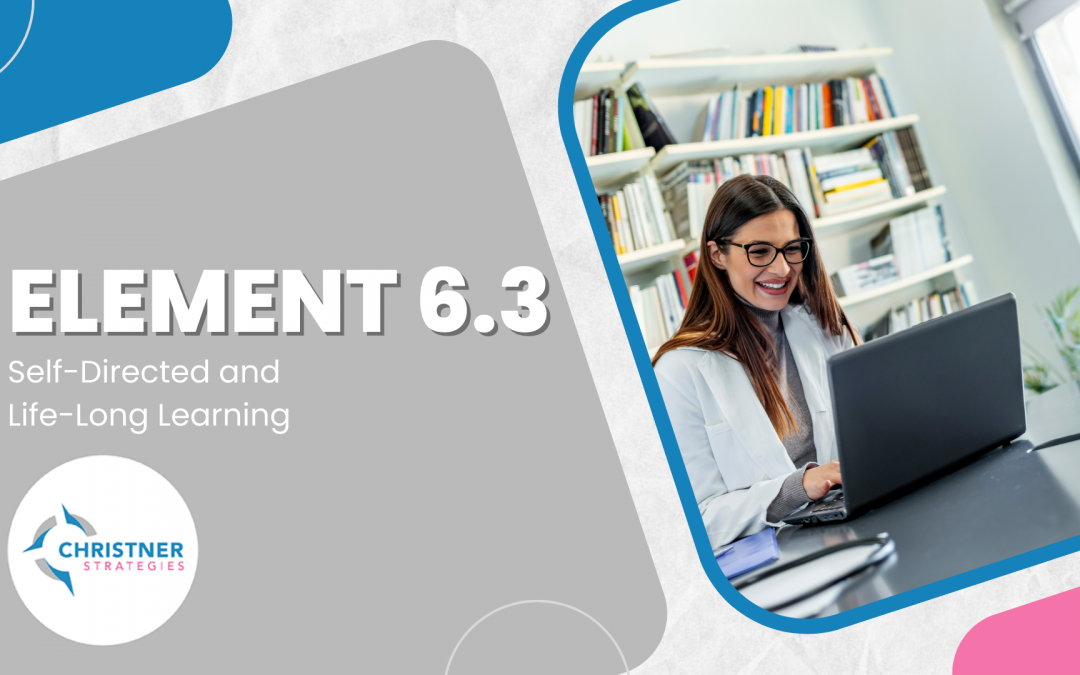
Element 6.3: Self-Directed and Life-Long Learning
LCME Element 6.3 - Self-Directed and Life-Long Learning The faculty of a medical school ensure that the medical curriculum includes self-directed learning experiences and unscheduled time to allow medical students to develop the skills of lifelong learning....

Element 5.9: Information Technology Resources/Staff
For Today’s edition, Christner Strategies' in-house IT expert, Devin Dabney, is taking over the airwaves…. LCME Element 5.9 - Information Technology Resources/Staff A medical school provides access to well-maintained information technology resources sufficient in...
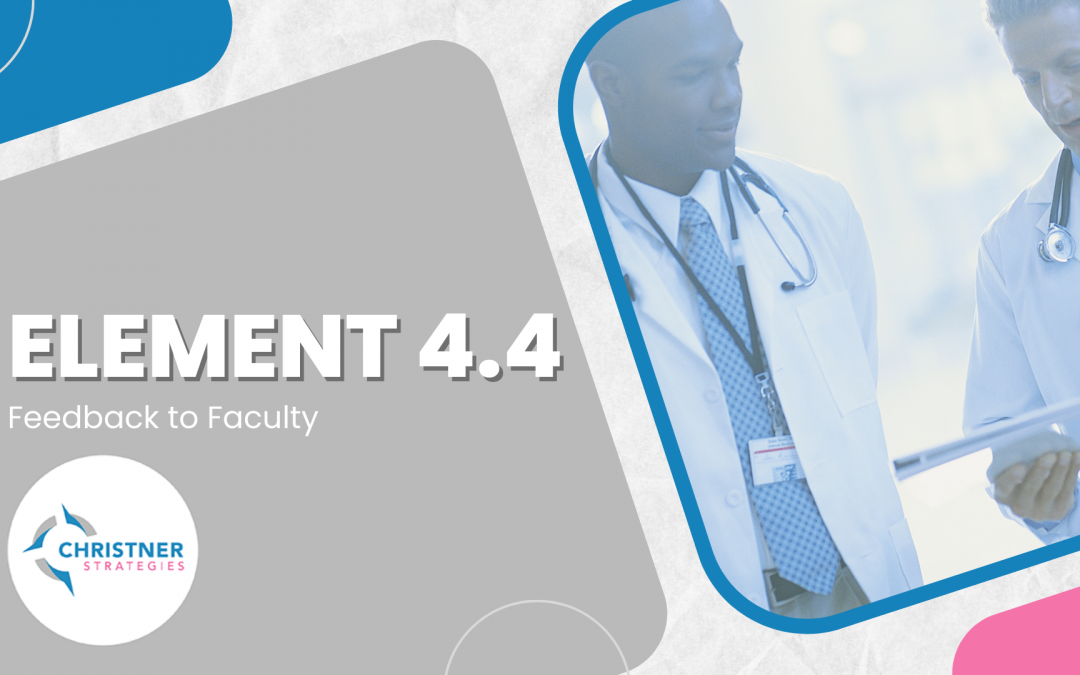
Element 4.4: Feedback to Faculty
LCME Element 4:4 - Feedback to Faculty A medical school faculty member receives regularly scheduled and timely feedback from departmental and/or other programmatic or institutional leaders on academic performance and progress toward promotion and, when applicable,...
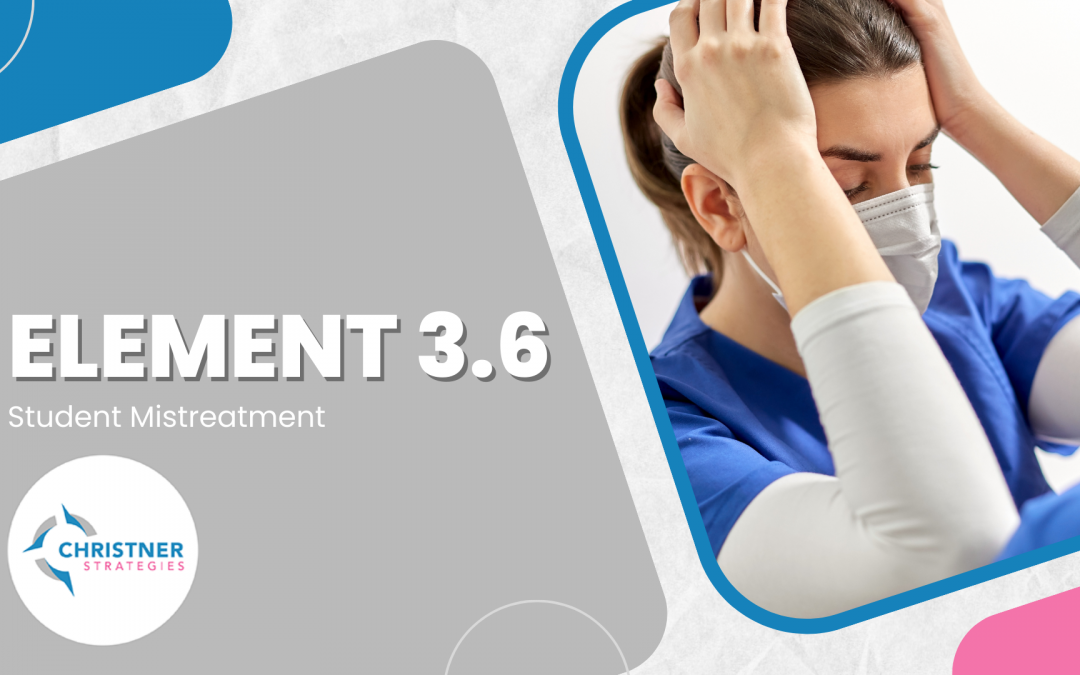
Element 3.6: Student Mistreatment
As it’s the third month of the year, let’s focus on an element from the third LCME Standard. Everyone’s favorite: LCME Element 3.6 - Student Mistreatment A medical school develops effective written policies that define mistreatment, has effective mechanisms in place...
